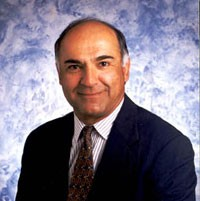IEEE PI2 Austin, October 2019, Tech Meeting, "Electric and Hybrid-Electric Vehicles"
IEEE PI2 Austin, October 2019, Tech Meeting
We ask that all attendees order at least $20 in food and drink or consider this to be a cover charge.
Abstract: Electric and Hybrid-Electric vehicles offer the most promising options for reducing vehicular emissions and increasing vehicle fuel efficiency. Dr. Ehsani will provide an overview of the topic.
Date and Time
Location
Hosts
Registration
-
 Add Event to Calendar
Add Event to Calendar
- Contact Event Host
-
If you plan to attend, please RSVP via e-mail to "pi2-secretary@ieee.org".
- Co-sponsored by IEEE PI2 Secretary
Speakers
 Mehrdad (Mark) Ehsani, Ph. D., P. E., L.F. IEEE, F. SAE, M. AAAS of Texas A&M University
Mehrdad (Mark) Ehsani, Ph. D., P. E., L.F. IEEE, F. SAE, M. AAAS of Texas A&M University
Electric and Hybrid-Electric Vehicles
Electric and Hybrid-Electric vehicles offer the most promising options for reducing vehicular emissions and increasing vehicle fuel efficiency. Electric vehicles (EVs) constitute a group of automobiles which qualify as ZEV. These vehicles use an electric machine for propulsion, and batteries as electrical energy storage devices. However, since the energy storage capacity of batteries is rather limited, these vehicles suffer from a limited driving range. Hybrid-Electric vehicles on the other hand, qualify as Ultra Low Emission Vehicles (ULEVs), and do not suffer from the range limitations imposed by EVs. These vehicles combine more than one energy source to propel the automobile. In heat engine/battery hybrid systems, the mechanical power available from the heat engine is combined with the electrical energy, stored in a battery to propel the vehicle. These systems also require an electric drive train to convert electrical energy into mechanical energy, just like their EV counterparts.
This talk will touch on the following topics:
Overview of EV/HEV Power Train
Vehicle performance and dynamics
Available and potentially available energy and power sources for vehicle application
Energy conversion (energy converters)
Characteristics of ICE powered vehicles and battery powered electric vehicles
Regenerative braking
Examples of electric and hybrid drive train technologies being developed in my group at Texas A&M University.
Biography:
Mark Ehsani is the Robert M. Kennedy Professor of Electrical Engineering at Texas A&M University. He is the co-author of more than 400 technical papers, 19 books, an IEEE standards book, and 30 US and EU granted patents and patent disclosures. He has won several prize paper and other awards in IEEE, including IEEE-VTS Avant Garde Award for his contributions to the hybrid electric vehicle technology and IEEE field award in Undergraduate teaching in 2003.
Ehsani has lead several international conferences and has served on the governing bodies of IEEE Power Electronics Society, Industry Applications Society, and Vehicular Technology Society. He is a Life Fellow of IEEE, a Fellow of SAE, a Distinguished Speaker of several IEEE Societies, and a registered Professional Engineer in the State of Texas since 1985.
Email:
Address:Prof. Mark Ehsani, Texas A&M University, College Station, Texas, United States, 77843
Agenda
Registration, Dinner and : 6:05 to 6:55PM
Social & Business Meeting: 7 to 7:30 PM
Program 7:30 to 8:30 PM
